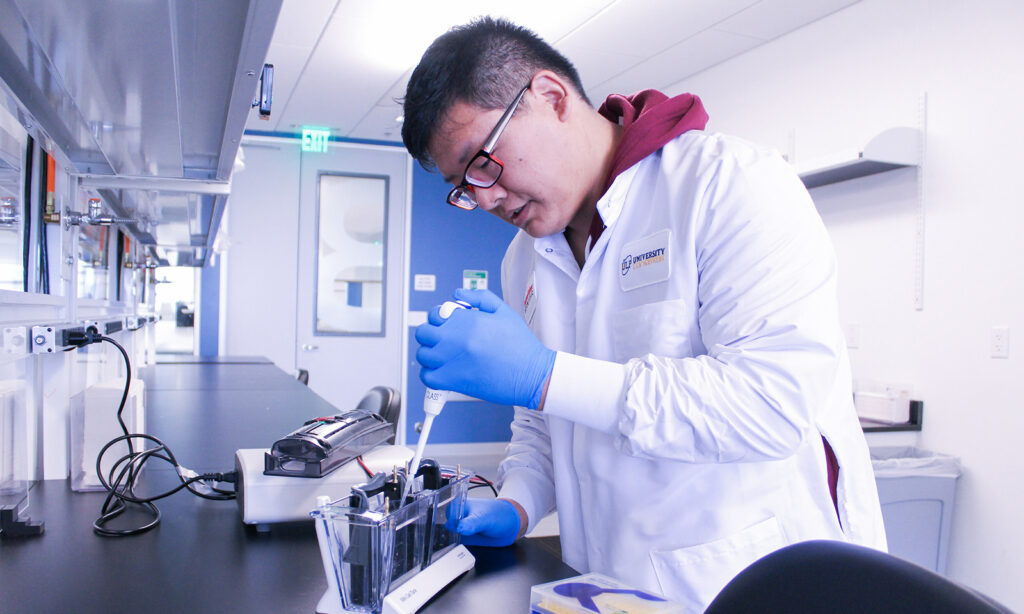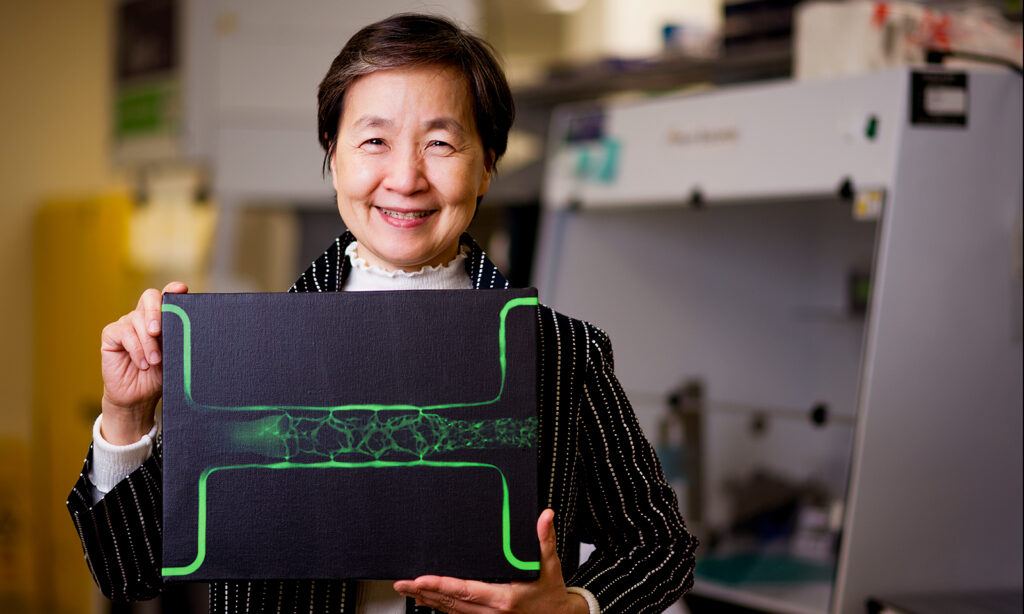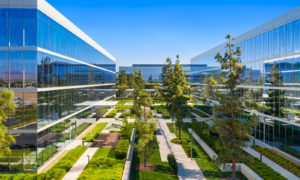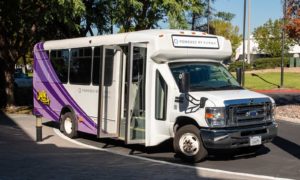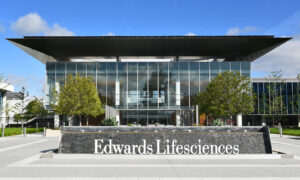When a small group of UC Irvine scientists had a dream of significantly improving medical choices for the seriously ill, they started five years ago from a cubby-hole type office on campus, crammed with a half-dozen workers.
But a few months later, their company, Aracari Biosciences, teamed up with University Lab Partners, a wet lab and medtech nonprofit. ULP, as it’s commonly known, not only gave them more space and more equipment and added expertise, but also a business model for success. Three years later, Aracari said goodbye to the ULP cocoon and headed to its own Irvine home. Today, Aracari already counts among its many clients the majority of the top 10 pharmaceutical companies in the U.S.
There’s a highly scientific word for the help University Lab Partners gives such startup companies: incubator.
By the most common definition, the incubator is “an enclosed apparatus providing a controlled environment for the care and protection of premature or unusually small babies.” Just substitute in small companies.
“We are honored to be advocates for ULP,” Aracari CEO Ming-I Huang says. “Without them, we wouldn’t be anywhere near what we are today.”
ULP now partners with more than 60 companies that altogether have well over $500 million in assets.
Located at UCI Research Park, ULP is in partnership with UCI’s Beall Applied Innovation, which unites entrepreneurs, innovators, investors and industries into a stronger Orange County ecosystem. The ULP incubator helps turn much of that work into companies that provide thousands of jobs as well as improved science and medicine worldwide.
“We have a unique position in the marketplace,” says Kenneth Beall, ULP founder and president. “My favorite part of the ULP community is the mixture of established companies with early-stage startups and with academic researchers.”
Plus, he points out, it has involved more than 1,000 UCI and area high school science and medical students through internships and other programs.
Aracari has a goal to replace animal testing methods with better bioscience measures for improved drug production.
“Most people don’t know that 90% of those animal studies fail,” Huang says. “It’s the $2 billion question how much we can reduce that number, but we know it will be significant.”
“We have a unique position in the marketplace. My favorite part of the ULP community is the mixture of established companies with early-stage startups and with academic researchers.”
Kenneth Beall, ULP founder and president
After working with ULP from 2020 through 2022, Aracari flew on its own in January 2023.
Its story has since been replicated dozens of times over. In 2023, ULP added a facility at Soka University in Aliso Viejo, hired numerous additional staff at the top of their field, added important patents and published critical papers in its field.
In some cases, ULP’s incubator system greenlights companies that might otherwise fail. That was the case with Translucent Biosystems, which specializes in the study of the brain and other vital organs.
“We were a very small bootstrapping company when we started out,” says Damian Wheeler, CEO of Translucent Biosystems. “Without ULP, I don’t know if we would have made it.”
ULP has a core mission for helping these companies, its president, Beall, has written: “Our goal is to accelerate the development (of these companies) that will benefit society. Our programs and collaborations help us advance promising therapies and products so they can get to market faster.”
Adds Huang of Aracari: “We are so thankful that ULP is building a community of innovators.”
